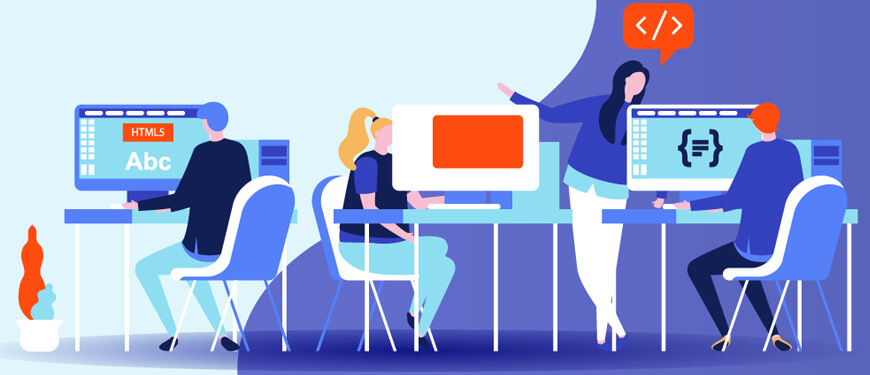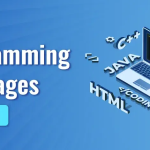
Some years back, if you wanted a career in tech, there was only one clear path: get a Computer Science degree, grind through four years of theory, then graduate into your dream job. But fast forward to today? The landscape has shifted dramatically. Now, coding bootcamps, self-paced learning, and hands-on skill-based education are taking centre stage.
So… is a traditional Computer Science degree still worth it in 2025? Let’s unpack it.
The Case for a Computer Science Degree
Let’s be fair—there are undeniable strengths to a formal CS degree. You’ll get:
- Strong theoretical foundations – Algorithms, data structures, and operating systems, all taught in depth.
- University prestige – Degrees from top institutions can still open corporate doors.
- Broad exposure – You’re not just learning how to code, you’re learning how computers work at a fundamental level.
If you’re aiming to get into academic research, AI/ML development, or roles at companies that still value traditional credentials (think Google, IBM, or Microsoft R&D), then yes, pursuing a CS degree might still be your best bet.
But here’s the twist: skills, not just degrees, are now the real currency in tech.
The Rise of the Skills-First Era
In today’s fast-moving tech world, companies prioritise skills over degrees, seeking professionals who can deliver results immediately. Traditional four-year programs often lag behind the industry’s pace, making bootcamps a more agile and relevant option. Institutions like Moringa Tech School are leading this shift with structured, skill-based training, real-world projects, and strong networking opportunities—empowering students to become job-ready in months, not years.
Why Many Are Skipping the Degree Route
Bootcamps like Moringa are quickly becoming the go-to for aspiring developers, and here’s why:
✅ Skill-Based Curriculum
Forget rote memorisation and theoretical exams. Bootcamps focus on project-based, hands-on learning from day one. You’re building real applications, collaborating with peers, and solving practical challenges—just like in a real tech job. This means you’re not only learning how to code, but also how to think like a developer, debug efficiently, and adapt in real-time.
✅ Shorter Time Commitment
Time is money, and bootcamps respect that. Instead of spending four years in a lecture hall, you can become job-ready in as little as 6 to 12 months. This accelerated learning model is perfect for career switchers, recent high school grads, or anyone eager to enter the workforce quickly without compromising on the quality of education.
✅ Career Support & Networking
Bootcamps doesn’t just give you technical skills—they help you launch your career. Their programs include mentorship, soft skills training, portfolio building, interview prep, and access to a powerful alumni network. Graduates leave with more than just a certificate—they leave with connections, confidence, and a roadmap to navigate the tech world.
✅ Aligned With Industry Needs
Tech evolves fast, and bootcamps move with it. Unlike traditional universities bound by rigid curricula, bootcamps frequently update its course content to reflect the latest industry trends. Whether it’s AI, DevOps, full-stack web development, or cloud engineering, students learn what’s actually being used in the field today, making them highly employable from the start.
✅ Self-Taught Pathways
For the ultra-independent learner, the self-taught route offers flexibility and zero tuition fees. With a wealth of open-source materials, YouTube tutorials, GitHub repositories, and platforms like FreeCodeCamp, Codecademy, and The Odin Project, you can dive into everything from HTML basics to full-stack development at your own pace. The challenge here is that it demands strong discipline, a sharp sense of direction, and the initiative to seek out communities and mentorship
Which One Should You Choose?
Here’s the honest truth: it depends on your goals.
- If you’re academically inclined, love theory, and want to pursue long-term research or top-tier FAANG jobs with a traditional mindset, a CS degree might still be worth it.
- But if you’re focused on practical skills, want to enter the job market quickly, and value a community-driven learning approach, then a bootcamp might be a better fit.
In 2025, companies are hiring people who can build, not just people who can talk about building.
Final Thoughts: The Power of Choice
Whether you pick a traditional degree or a coding bootcamp, make sure you’re choosing based on your learning style, career aspirations, and lifestyle.
And if you do lean toward the bootcamp route? You’re not compromising. You’re choosing speed, relevance, and skill—especially if you go with a school like Moringa, where the curriculum is as real as it gets, and the connections go deep.
The rules of tech have changed. The question now isn’t “Which path is better?”
It’s: Which path gets you where you want to go—faster, smarter, and stronger?











